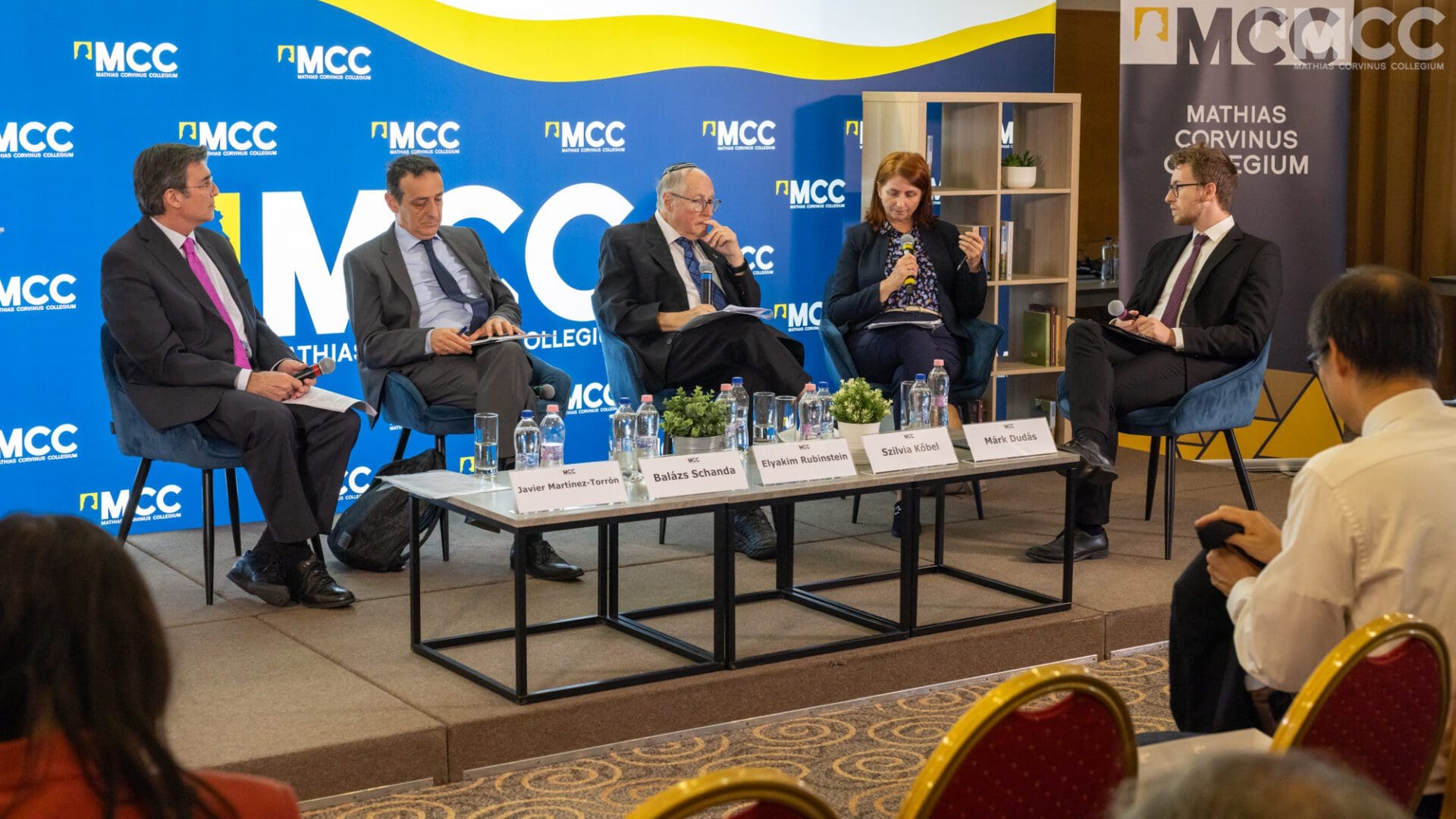This article is partially based on the translation of a press release kindly provided to us by the Mathias Corvinus Collegium.
MCC’s conference titled Rescuing Our Inalienable Rights, took place last Thursday, 27 September at the MCC Campus in Budapest, Hungary. Beside commemorating the 75th anniversary of the Universal Declaration of Human Rights, it also took a critical look at the development of human rights.
From Asia to Africa and America, law professors and scholars from all legal traditions of the world participated in the MCC conference organised together with the Barna Horváth Law and Liberty Circle.
In addition, the law professors of many prominent Hungarian law schools also shared their insights at the event.
UDHR in fact commenced a new era in which human rights have become a defining narrative in public and political thinking. However, while at the time of its adoption, it was meant to reflect the consensus of nations with different historical, religious, political, and cultural backgrounds, in recent years and decades, it has been surrounded by increasingly more tense controversies: according to MCC, certain interest groups are trying to use the moral power and prestige of UDHR to further their own agenda.
As Thio Li-ann, professor of law at the National University of Singapore pointed out at the conference, ‘The Universal Declaration of Human Rights has become the victim of its own success, which can lead to the “dilution” of the idea of human rights if we consider every wish or claim one.’
David Tse-Chien Pan, professor of law at the University of California and member of the Commission on Unalienable Rights stressed that
the enforcement of rights can only happen at the nation-state level, which requires sovereignty.
Anikó Raisz from the University of Miskolc also emphasized that human rights presuppose sovereignty.
Elyaḳim Rubinshṭain, the former Attorney General of Israel was also among the speakers of the conference. He, along with Javier Martínez-Torrón from the Complutense University of Madrid, Constitutional Court Justice Balázs Schanda of Hungary, and Szilvia Köbel from the Károli Gáspár University of the Reformed Church in Hungary discussed freedom of religion, enshrined in Article 18 of the famed UN document. Mr Rubinshṭain highlighted that UDHR came about in response to the atrocities committed by Nazi Germany, in particular the Holocaust. He also pointed out that his particular faith, Judaism, was oppressed by both Nazism and Stalinism at the time. Meanwhile, Professor Köbel told the audience that freedom of religion is derived from other rights, such as freedom of expression and conscience; and it is incomplete without the enforcement of other supplementary rights, like that of education, and state support for organized religions.
Mathias Corvinus Collegium on X (formerly Twitter): “With 250+ attendees & 20+ speakers from a dozen countries, MCC’s latest conference on the UDHR and human rights was a roaring success.💬Panellists dove deep into vital topics such as human rights, sovereignty, international law, and much more! #UDHRconference pic.twitter.com/Gz0vSAmME0 / X”
With 250+ attendees & 20+ speakers from a dozen countries, MCC’s latest conference on the UDHR and human rights was a roaring success.💬Panellists dove deep into vital topics such as human rights, sovereignty, international law, and much more! #UDHRconference pic.twitter.com/Gz0vSAmME0
Professor Martínez-Torrón shed light on the fact that practicing one’s right to worship carries significant danger in some parts of the world to this day; and went on to describe the right to exercise one’s chosen religion as ‘the freedom to be ourselves’.
Charles Kesler, professor of government at Claremont Graduate University and Renée Lerner from George Washington University were both of the opinion that the Western democracy of today has degraded the standard of ‘rights’ to protecting newer and newer ‘lifestyles’. Thibault Mercier, the head of the Cercle Droit et Liberté in France stressed that we do not have to separate individual rights and society, as neither can exist without the other. Gergely Deli, Rector of the the University of Public Service, invoking the Hungarian context of the event’s theme, reminded all that the enforcement of minority rights is still relatively weak; and European integration has not yielded the results Hungary was reasonably expecting when joining the European Union.
‘This conference is not just a commemoration, but also a “rescue mission”’,
since these days, the notion of rights is increasingly more often interpreted as such that we should enforce them in a way that is contrary to our way of living, culture, and tradition—Sándor Lénárd, the chief organizer of the event opined. The head of MCC’s Center for International Law also added that it is our cultural heritage that makes us who we are today, and the idea of fundamental rights and responsibilities was conceived to protect that.
Related articles:








